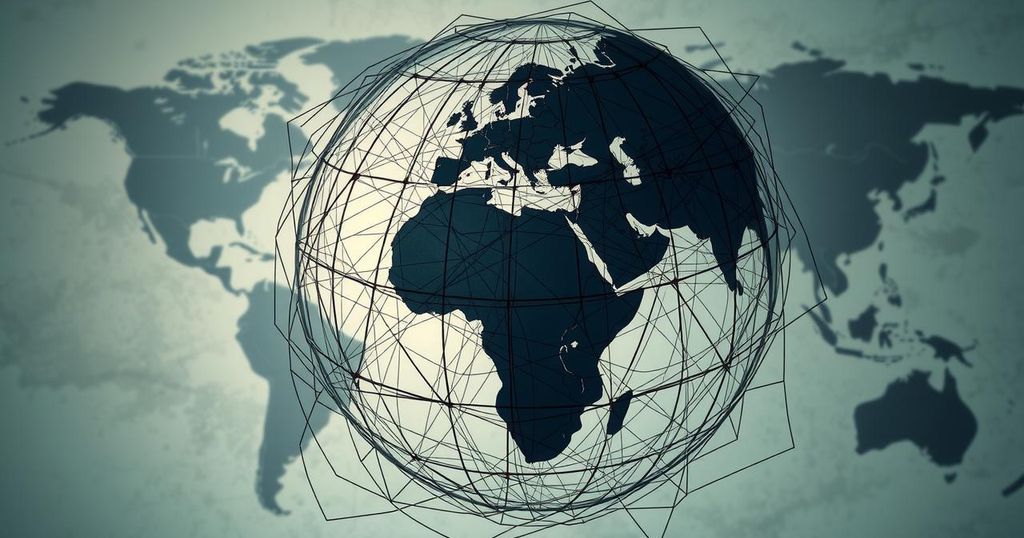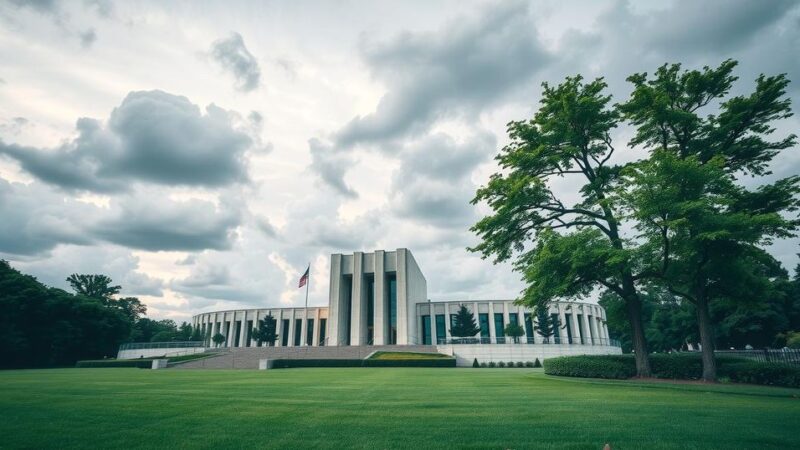Donald Trump’s criticism of South Africa’s land reform bill reveals tensions related to historical injustices, economic implications, and foreign relations. While Ramaphosa promotes land restitution aligned with partnerships, opponents fear property rights may erode. The situation is further complicated by political interventions from Trump regarding U.S. aid and trade agreements, reflecting broader geopolitical concerns.
Donald Trump’s recent outburst regarding South Africa’s land reform raises critical questions about underlying motivations. The narrative begins with a historical account from Bernard Shabangu, whose grandfather faced dispossession under apartheid laws. Although South Africa’s 1990s constitution allowed for restitution, progress remains slow, creating tensions especially among marginalized communities seeking land rights.
Current President Cyril Ramaphosa has introduced a bill enabling expropriation without compensation, which Trump labeled as “hateful rhetoric” against minority landowners, prompting fears of halted U.S. aid totaling approximately $320 million. Concurrently, Trump may consider excluding South Africa from crucial trade agreements estimated at $14.7 billion yearly.
Agricultural stakeholders express concerns that erosion of property rights could stymie investment; Afrikaner farmer Lion du Pressis emphasizes that fair compensation is essential for economic viability. While promoting partnerships, black farmers like Bernard Shabangu advocate for reform to rectify historical injustices.
However, structural inequalities persist. Professor Ruth Hall highlights the legacy of colonial practices, emphasizing the need for equitable land distribution amidst growing discontent among the black majority. Activists and legal experts voice worries that the government possesses unchecked powers under the proposed expropriation framework.
Amidst this contention, the external influence of Trump intertwines with domestic politics. His actions reflect a broader geopolitical narrative, intertwining racial equity issues with U.S. foreign relations, particularly its stance toward Israel. The intertwined nature of these issues prompts speculation on their impact on bilateral ties.
Ramaphosa’s challenge lies in reconciling domestic obligations with foreign relations. Notably, the ANC seeks to balance the ongoing demands for land reform while navigating international scrutiny. Trump’s claims of race-based discrimination and economic pressures may compel the South African government to articulate their positioning amidst conflicting interests.
The interplay between South Africa’s land reform policies and foreign diplomatic relations, particularly with the United States, remains a complex issue. President Ramaphosa is tasked with advancing land redistribution while addressing global concerns about property rights and investment climate. Tensions are likely to persist as Trump’s assertions against South Africa prompt ongoing debates surrounding racial equity, economic viability, and geopolitical interests, underscoring the significant challenges within South Africa’s evolving democracy.
Original Source: www.bbc.com






